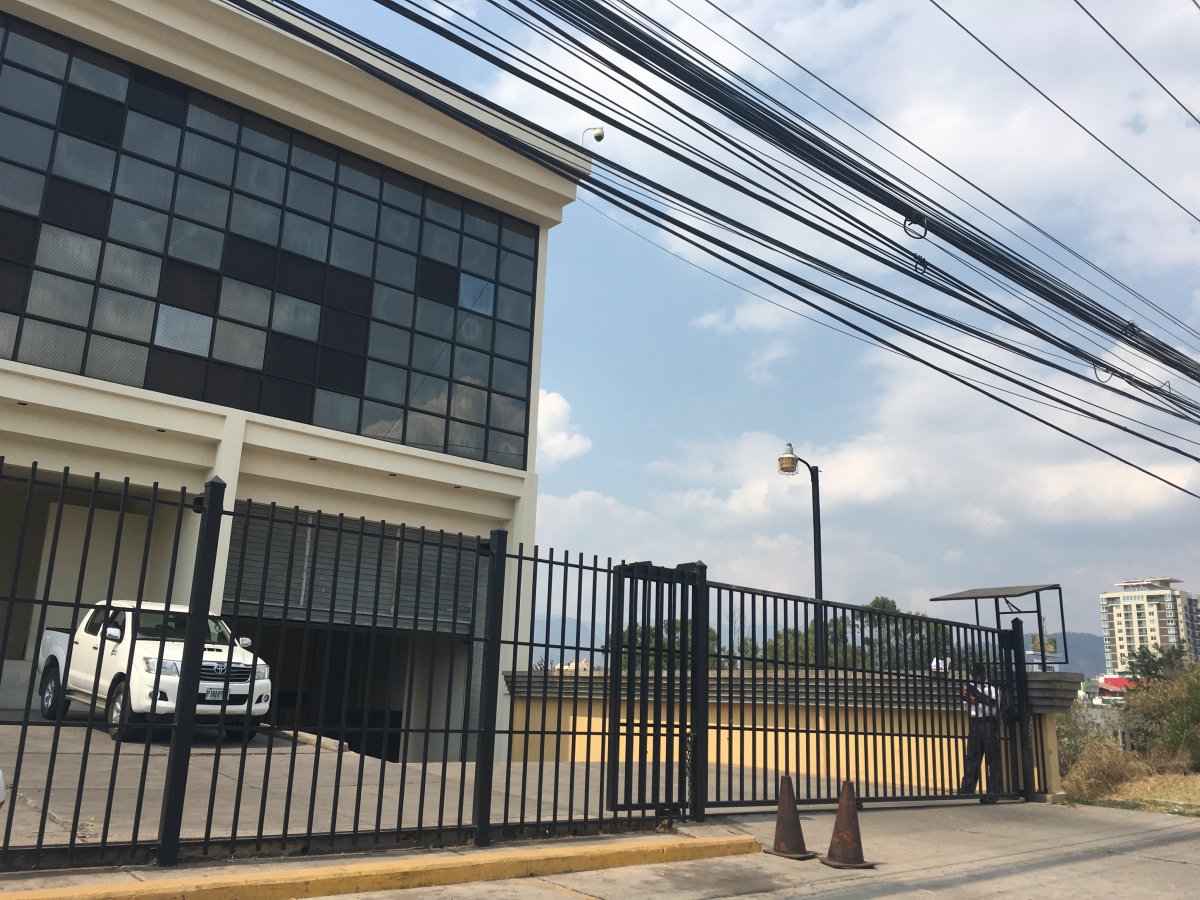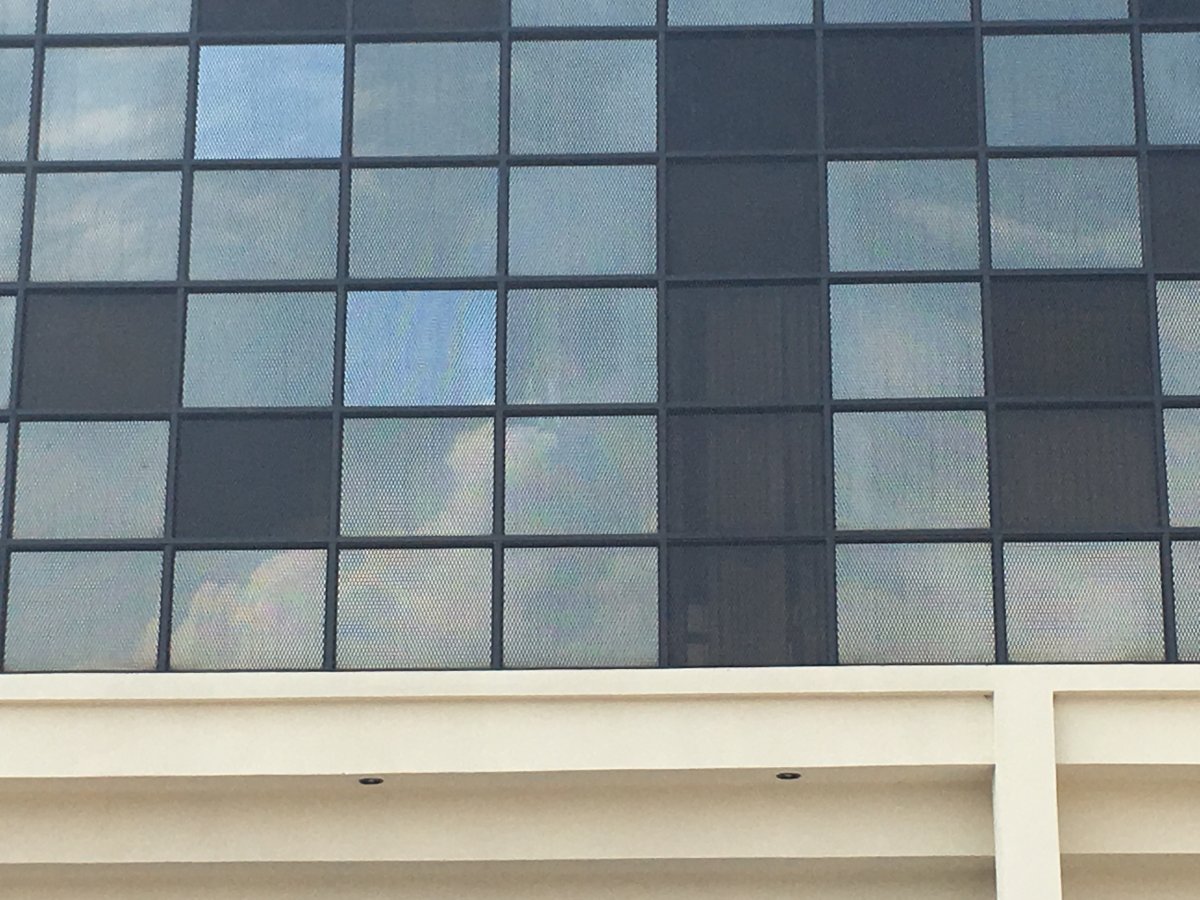As the news director of Radio América, one of Honduras’ most listened-to radio stations, Rodrigo Wong Arévalo needed to be in his office at the crack of dawn.

Outside of the country, Wong Arévalo is known as a liberal journalist and critic of the government – especially in the 1980s – calling them out for harbouring Nicaraguan rebels backed by the U.S. who were trying to topple the Sandinista government.
For 13 years, he had a routine — he was always in his car at exactly 4 a.m.
One Sunday night, 30 years ago, after returning from an exhausting drive after a weekend at the beach with his friends, Wong Arévalo decided to break routine and set his alarm for 5 a.m.
He didn’t get to sleep in as planned.
READ MORE: Honduras chief denies death squads
On Aug. 4, 1986, a bomb made of C-4, a powerful plastic explosive used by the U.S. army during the Vietnam war and by several terrorists groups including al-Qaeda, was placed under the driver’s seat of Wong Arévalo’s car.
It exploded at 4:05 a.m.
His car was totaled and the front of his home was destroyed.
Wong Arévalo, his wife and three children, were woken up by the blast.
No one was hurt because their rooms were tucked at the back of their home.
“They certainly had me tracked down, I was saved by my friends and by the grace of God,” said Wong Arévalo.
Six months after that attack, he received an unexpected visit at the radio station from a man, claiming to have information about the incident.
“I was apprehensive, but I let him in,” Wong Arévalo told Global News.
Wong Arévalo said the mysterious man explained he was part of the group that planted the bomb in his car, and gave him a list of names of the people allegedly involved.
READ MORE: Missing Honduras beauty queen, sister found dead
Before leaving, the man warned Wong Arévalo that he was still in grave danger.
The reason: his sharp and critical daily editorials, many of them aimed at the military and government.
“He asked me not to divulge the information right away. He was planning to escape the country that day by land and asked to give him a few days so he could reach Canada,” Wong Arévalo said.
“The man was afraid he would be killed by his own.”
Wong Arévalo later found out the man was an agent known as Reyes who worked for Honduras’ 3-16 battalion, an army unit allegedly responsible for carrying out political assassinations and torturing suspected political opponents of the government during the 1980s.
Since that day, Wong Arévalo has a driver who doubles as a bodyguard.
Wong Arévalo then founded his television news station in 1988.
It sits in the Abriendo Brecha‘s building, on one of the main boulevards of Tegucigalpa, Honduras.
As Global News found out, entering the TV station is an intensive exercise in security.
First, there are two armed guards at a giant fence, whose job is to make sure not to let anyone in who isn’t on the guest list for the day; in the parking lot, more security.
Once inside the building, a small security bureau takes your ID and someone escorts you to Wong Arévalo’s office.
On the top floors, the building’s windows are secured by a metallic mesh — he explained the glass has been broken by rocks thrown by Wong Arévalo’s opponents too many times.
Security is tight because Wong Arévalo said he still feel fears for his life.
Wong Arévalo lives a different kind of normal: he never goes anywhere alone and he admitted he hasn’t been to the movies in years.
He even toned down his spiky editorials.
As one of Honduras’ most popular broadcasters, he said he used to think he was shielded by the public.
“I recognized I was doing an aggressively rebellious kind of journalism,” he said.
“I thought I was protected by people, but I realized I have to watch my back.”
Violence against journalists
The Global Peace Index report, which measures the state of peace in 162 countries according to 23 qualitative and quantitative indicators, ranked Honduras the 116th most peaceful country in 2015.
Canada came in at No. 7.
On the day Global News interviewed Wong Arévalo, headlines in the local news included allegations that Honduran police were colluding with drug lords and had been involved in high-profile murders, including anti-drug czar Julián Aristides González.
Another headline told the story of a 21-year-old alleged hit woman who reportedly killed a driver inside a bus that was carrying passengers.
WATCH BELOW: Abriendo Brecha aired security video of an alleged 21-year-old hit woman, Wednesday, April 20, 2016.
** Warning, this content might be considered disturbing for some.
The stories are crude, and it’s somewhat of nightmarish déjà-vu that Wong Arévalo faces every day.
“Some news are open secrets in Honduras, but they are never published because of the fear that has taken over journalists, and with reason because a denunciation can cost them their lives,” said Wong Arévalo.
In the end, it was a New York Times article that broke the news of allegations of collusion between the Honduran police and drug lords.
“High-profile media like the New York Times can allow themselves the luxury of telling things key players don’t want publicized,” he said.
¨I am also afraid [to report on these types of stories]. But it is my duty.”
WATCH BELOW : Rodrigo Wong Arévalo’s editorial, Wednesday, April 20, 2016.
Honduran journalists’ fears are fueled by the high levels of prevailing impunity because many who commit crimes end up being exempt from punishment.
According to the 2015 Global Impunity Index, a study by investigators at the Universidad de Las Américas in Puebla, Mexico, out of 59 countries in the world, Honduras is among the top five countries with the most impunity.
In a way, this implies that criminals have almost no fear of punishment.
The Inter-American Commission on Human Rights reported that 50 journalists were killed in Honduras between 2003 and 2014.
In 2009, the number of deaths spiked.
It was also the year Honduras saw a political shakeup, leading the government to work with the military to oust its own president, Manuel Zelaya.
Some considered this to be a coup d’état, others a constitutional succession.
READ MORE: Honduran police say mutilated body belongs to missing journalist
The ousting happened the day before Zelaya was set to carry out a non-binding poll to hold a referendum to modify one of the “artículos pétreos” – a series of articles in the constitution that cannot be amended.
Zelaya wanted to change part of the constitution that prevented him from running for re-election, but this article is binding and cannot be changed.
He wanted to be eligible for a second term, amidst controversy and rumours of strong ties to Venezuelan dictator Hugo Chávez, who some believed to be the driving force behind the referendum.
The president called for a non-binding referendum on June 28, 2009, even though it was declared illegal by national courts and the Honduras Supreme Electoral Tribunal.
When he refused to cancel it, the military took Zelaya into custody.
At the crack of dawn and under the Supreme Court’s orders, the Honduran military raided Zelaya’s home, arrested him in his pajamas and flew him to Costa Rica.
Zelaya declared it a coup – dividing Honduran society.
Journalists on both sides of the debate increased their reports of criticism or support for the ousted president.
Wong Arévalo was one of those journalists who supported the ousting, saying it was the straw that broke the camel’s back after years of tension.
READ MORE: Ex-president of Honduras admits to bribery in FIFA scandal
“Honduran journalism divided diametrically. There was a type of journalism that started supporting Zelaya’s populist actions. I was considered a contrarian to their interests and an enemy of their purposes,” said Wong Arévalo.
“If one defends the democratic system, then one becomes, in their eyes, an ultra-right supporter, an enemy of the popular classes. It’s the same talk you hear in Cuba, Venezuela, all dictatorial systems.”
Freedom of speech or debauchery of expression?
Freedom of expression in Honduras, mused Wong Arévalo, is like walking on a tightrope, going from one extreme to the other.
In March 2016, Ellner was sentenced to 10 years in prison on charges he defamed a former prosecutor.
Globo TV, the news station Romero Ellner ran, was recently taken off the air by the Honduran government.
The government said the station failed to renew its licence on time.
Global News emailed and called the station multiple times before it was taken off the air, but didn’t receive a response.
“Honduran institutions have been colluding with the official establishment, it’s not just the police that are corrupt,” said Wong Arévalo.
“Besides politicians and political parties, even judges and public prosecutors have been colluded. Corruption has become the norm here.”
Setbacks and kickbacks
Wong Arévalo is no stranger to the court system.
After then-president Rafael Leonardo Callejas finished his mandate in the early 1990s, he was charged with seven counts of corruption.
Callejas was tried in 2005 and was acquitted.
In turn, Wong Arévalo was taken to court because he criticized the court’s decision, saying Callejas was most likely freed because he controlled judicial power.
“Callejas asked the judge that I quit talking about him on-air,” said Wong Arévalo.
“I accepted, in exchange of his promise to withdraw from the public sphere, where he would no longer be subject of critics.”
Both parties settled out of court.
A few months later, Wong Arévalo, a member of the Honduran soccer federation (FENAFUTH), learned Callejas wanted to become president of the organization.
Wong Arévalo told Global News the rumour was Callejas wanted to make him vice-president.
“I categorically refused. Instead, I said I would create my own project and run against him. If I lose, I’ll leave,” he said, adding it was actually a perfect excuse to leave the soccer federation.
Callejas later became a FIFA official and is currently one of the 16 leaders involved in the 2015 FIFA corruption case, which involved collusion between officials of the CONMEBOL (South America) and CONCACAF (Caribbean, Central and North America) and sports marketing executives.
Global News reached out to Callejas’ lawyer, Manuel Retureta, but he declined to comment.
READ MORE: Ex-president of Honduras admits to bribery in FIFA scandal
Wong Arévalo explained some people who don’t want to be subjected to his criticism don’t bother taking him to court, rather, they try to “nip it in the bud.”
He said a man once offered him half a million Lempiras, about $30,000, to promote his casino business.
He said a Canadian company doing business in Honduras once also sent out their publicist to persuade him to speak positively about them in his editorials.
He refused.
Now, Wong Arévalo says people don’t visit him anymore because they don’t have the courage to do so.
“They know this tree is too hard, no axe will break it,” he said.
Hope in the horizon
In spite of all the challenges Wong Arévalo faces on a daily basis — including having to give up a “normal life” — he insisted his work as a journalist is his duty, but he can’t hold the country accountable on his own.
“It is regrettable, it’s embarrassing, but without international help, we won’t get there,” said Wong Arévalo.
He said he is optimistic the recently founded MACCIH, a commission run by the Organization of American States to “support the fight against corruption and impunity in Honduras,” will help clean up the system.
In spite of all the problems, Wong Arévalo insisted he is still planning to expand his media empire.
He is “exporting” news with his new channel Sercano, a Central American news service broadcasting in the U.S. and online, that highlights positive news, such as immigrant success stories abroad, as well as local entertainment news.
He is hoping to bring the channel to Canada.
At 67 years old, Wong Arévalo said he hopes he still has a few years left in him as an anchor and many more doing his commentaries.










Comments